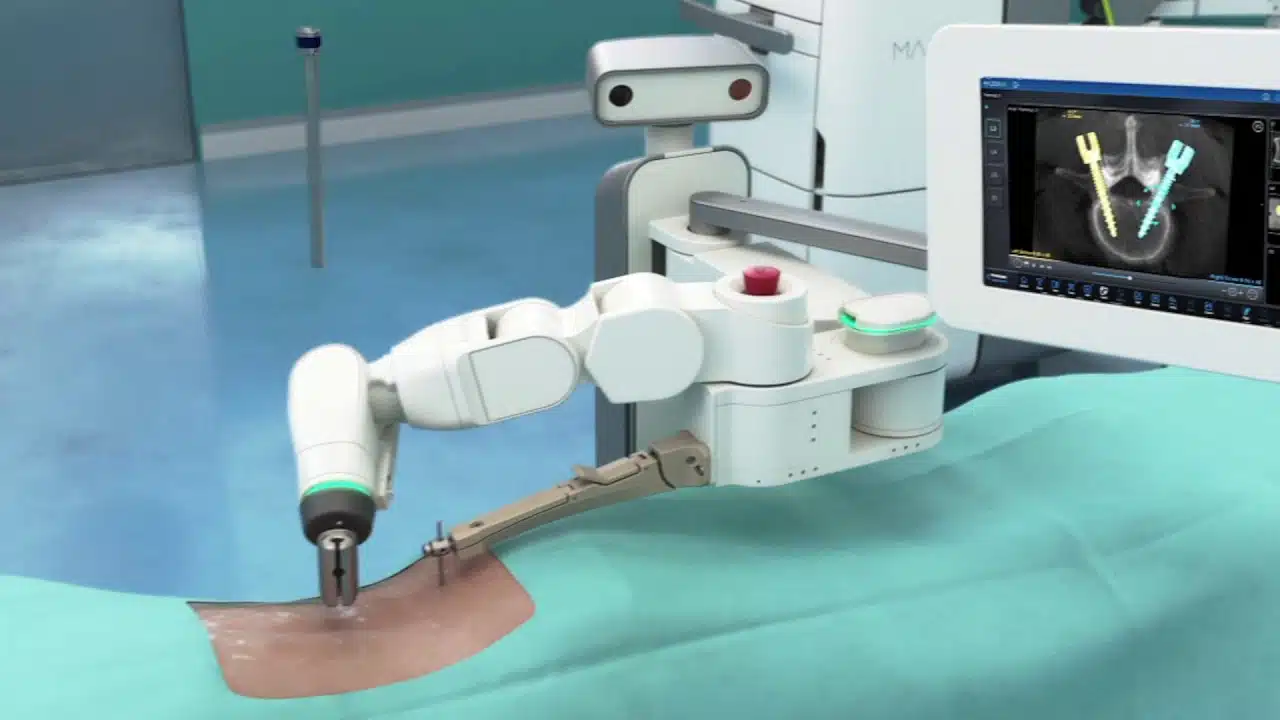Spine surgery has undergone remarkable advancements in recent years, revolutionizing the field and transforming patient care. From innovative surgical techniques to cutting-edge technologies, these advances have improved surgical outcomes, reduced complications, and accelerated recovery times for individuals with spinal conditions. We will take a look at some of the biggest impact innovations of the past 5-10 years and how they’re revolutionizing the field.
1. Minimally Invasive Spine Surgery
Minimally invasive spine surgery (MISS) has emerged as a game-changer in the field. Traditional open surgeries often involved large incisions, significant tissue disruption, and longer recovery periods. In contrast, MISS utilizes small incisions, specialized instruments, and advanced imaging techniques to access and treat spinal conditions with precision. This approach minimizes tissue damage, reduces blood loss, decreases post-operative pain, and shortens hospital stays. MISS has revolutionized spine surgery by offering patients faster recovery times and improved overall outcomes.
2. Robotic Assisted Spine Surgery
Robotic-assisted spine surgery has introduced a new era of surgical precision and accuracy. Surgeons now have access to robotic systems that assist in preoperative planning, intraoperative guidance, and navigation during complex spinal procedures. These robotic platforms, such as Medtronic’s MazorX, enable surgeons to create personalized surgical plans, enhance visualization, and execute precise movements, reducing the risk of human error. Robotic-assisted spine surgery improves the surgeon’s ability to navigate delicate spinal structures, resulting in improved surgical outcomes, reduced complications, and faster patient recovery.
3. Artificial Intelligence (AI) and Machine Learning
Artificial intelligence and machine learning have the potential to revolutionize spine surgery by assisting in decision-making, predicting outcomes, and optimizing surgical strategies. Companies like Theseus AI are utilizing algorithms to analyze vast amounts of patient data, radiological images, and surgical records to provide valuable insights and personalized treatment recommendations. These technologies aid surgeons in preoperative planning, optimizing surgical approaches, and predicting potential complications. With AI’s ability to continuously learn and improve from new data, the future holds tremendous promise for enhanced surgical precision and improved patient outcomes.
4. 3D Printing and Patient Specific Implants
3D printing has opened new avenues in the production of patient-specific implants and surgical instruments. Surgeons can now utilize advanced imaging data to create customized implants tailored to a patient’s unique spinal anatomy through companies like Medicrea. These patient-specific implants ensure better fit, stability, and improved surgical outcomes. 3D printing also enables the creation of anatomical models, allowing surgeons to plan complex procedures before entering the operating room. This technology reduces surgery time, enhances accuracy, and increases patient safety.
The Field Continues to Innovate
The field of spine surgery continues to be a hotbed of innovation, with even more groundbreaking advancements on the horizon. From precision medicine and regenerative therapies to advanced robotic systems and virtual reality, the future holds immense promise. for further enhancing surgical precision, personalizing treatments, and optimizing patient outcomes. As researchers, surgeons, and technologists collaborate, the ongoing innovations in spine surgery are set to reshape the field, improving the lives of individuals with spinal conditions and paving the way for a new era of patient-centered care.
